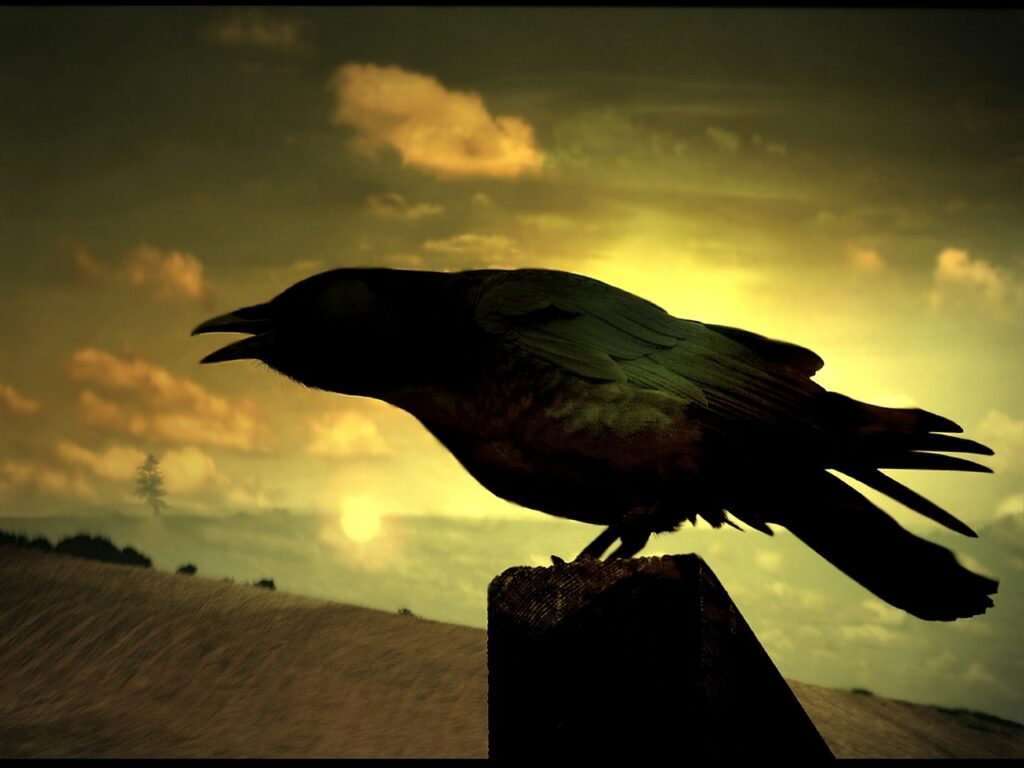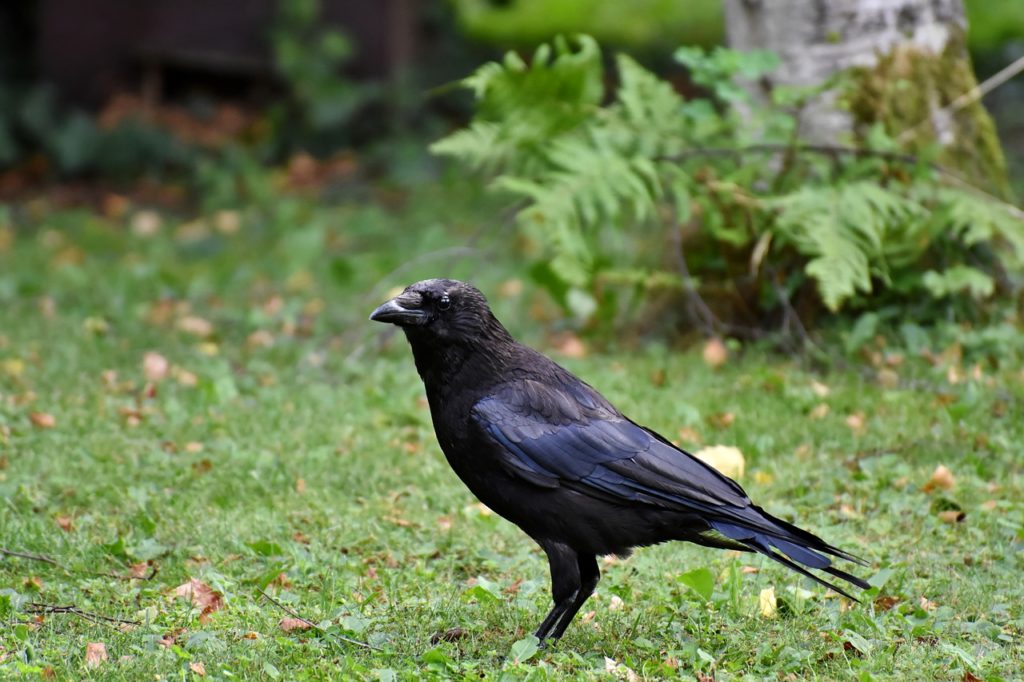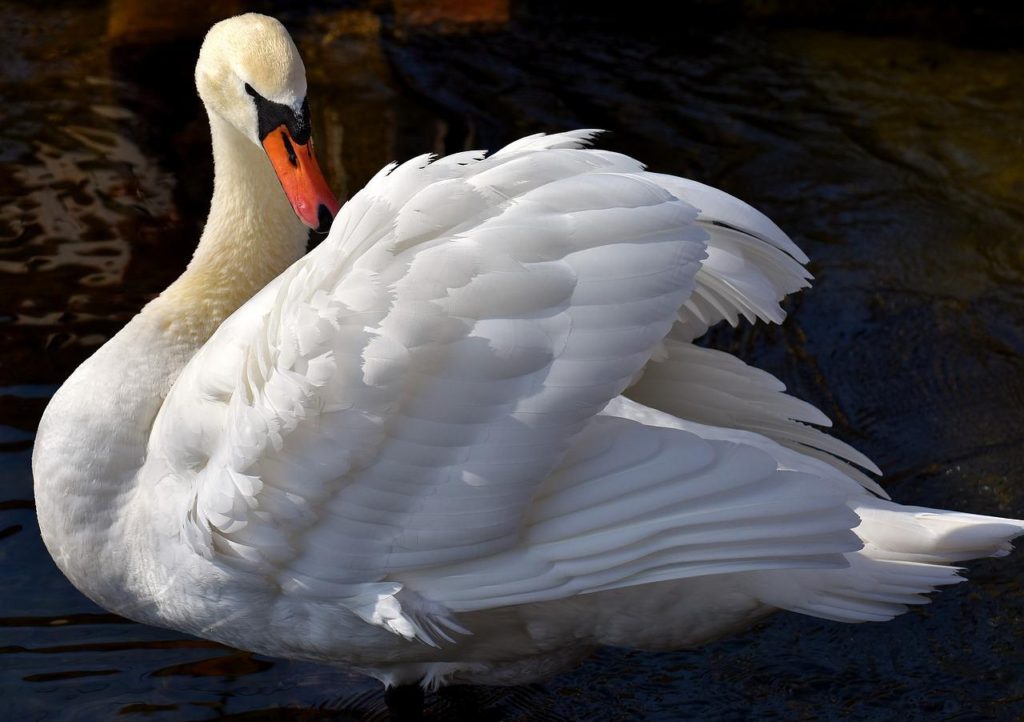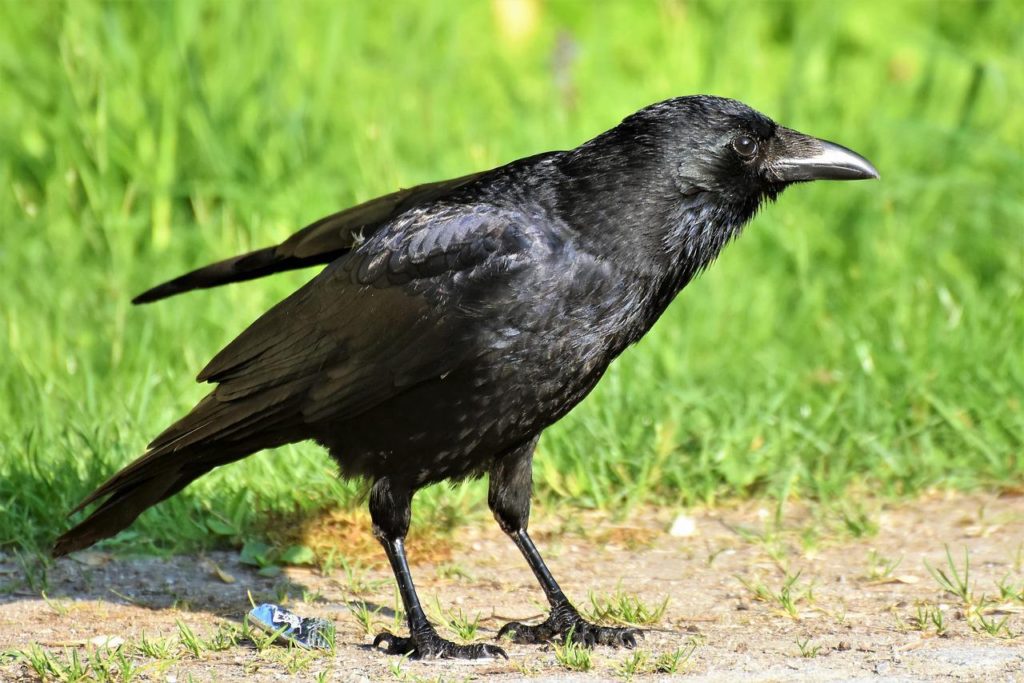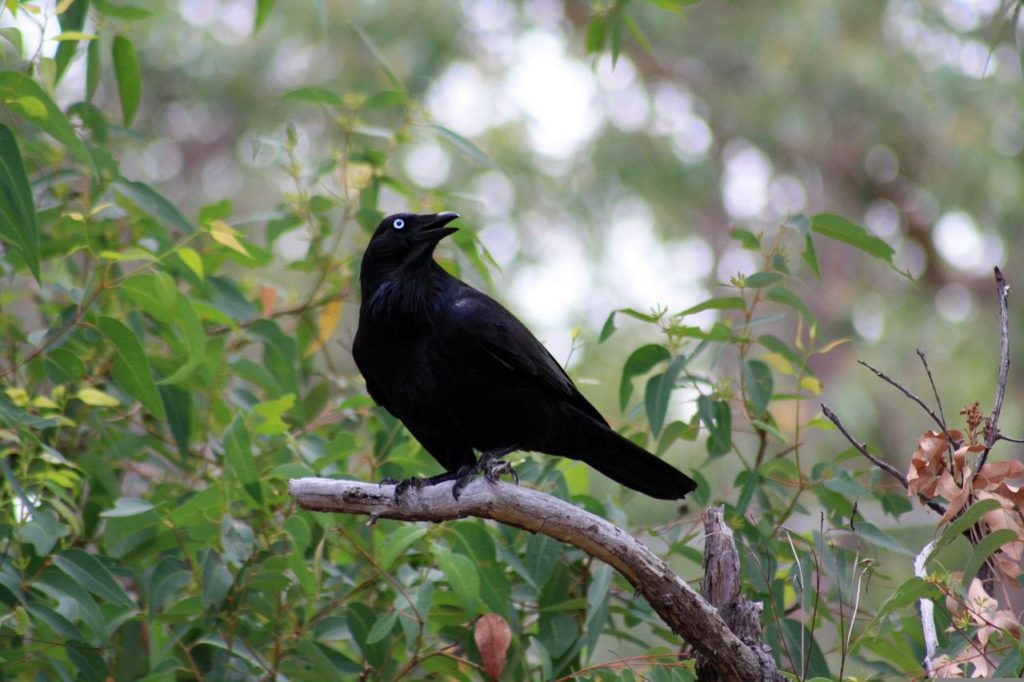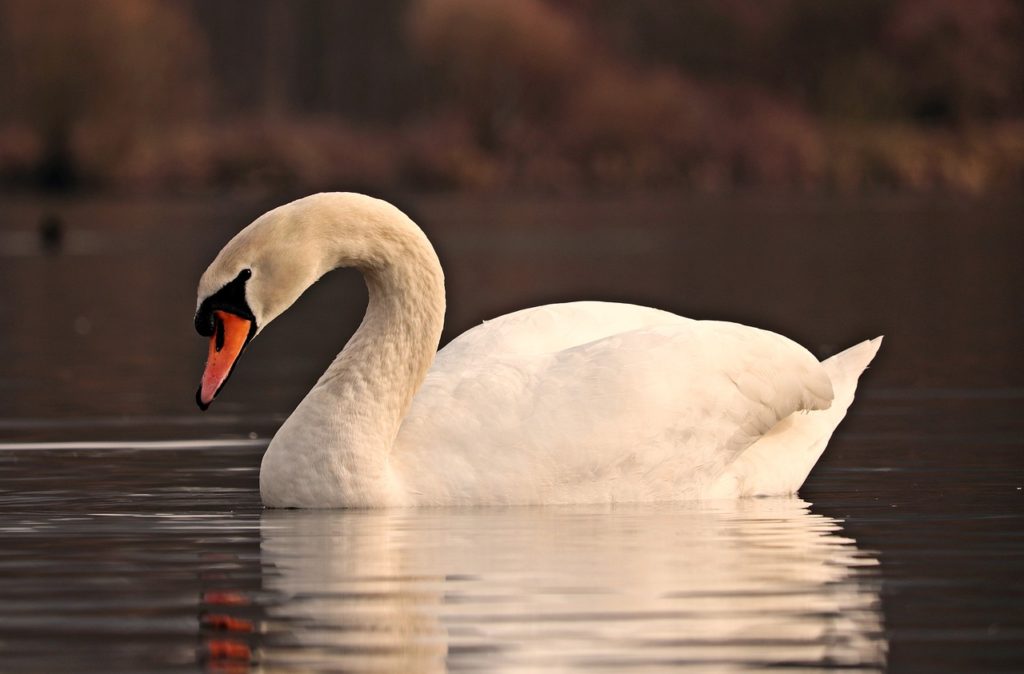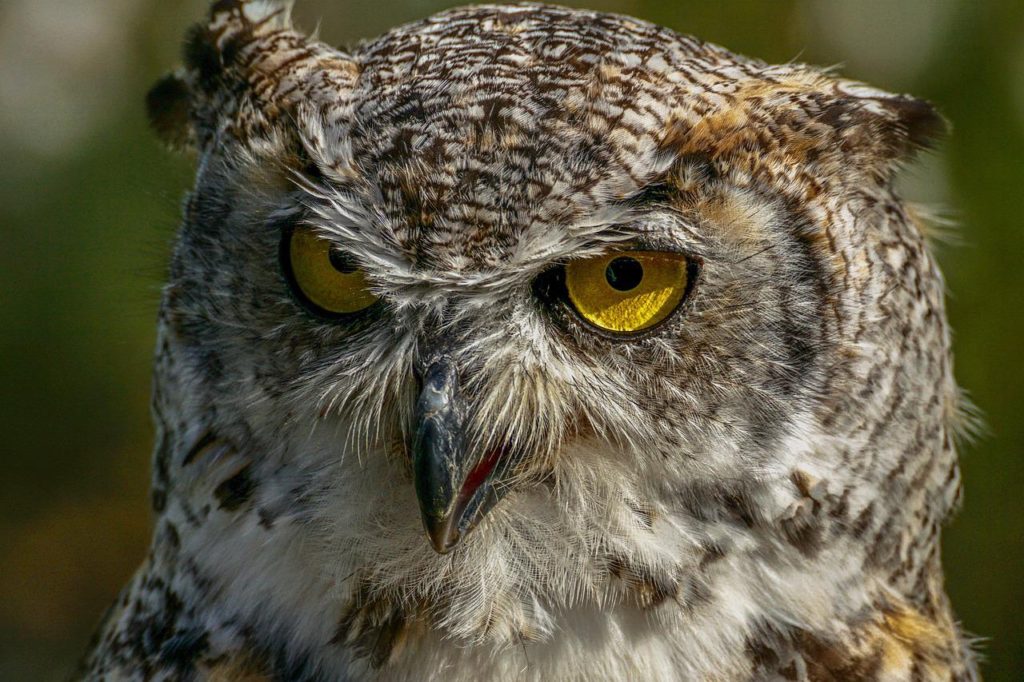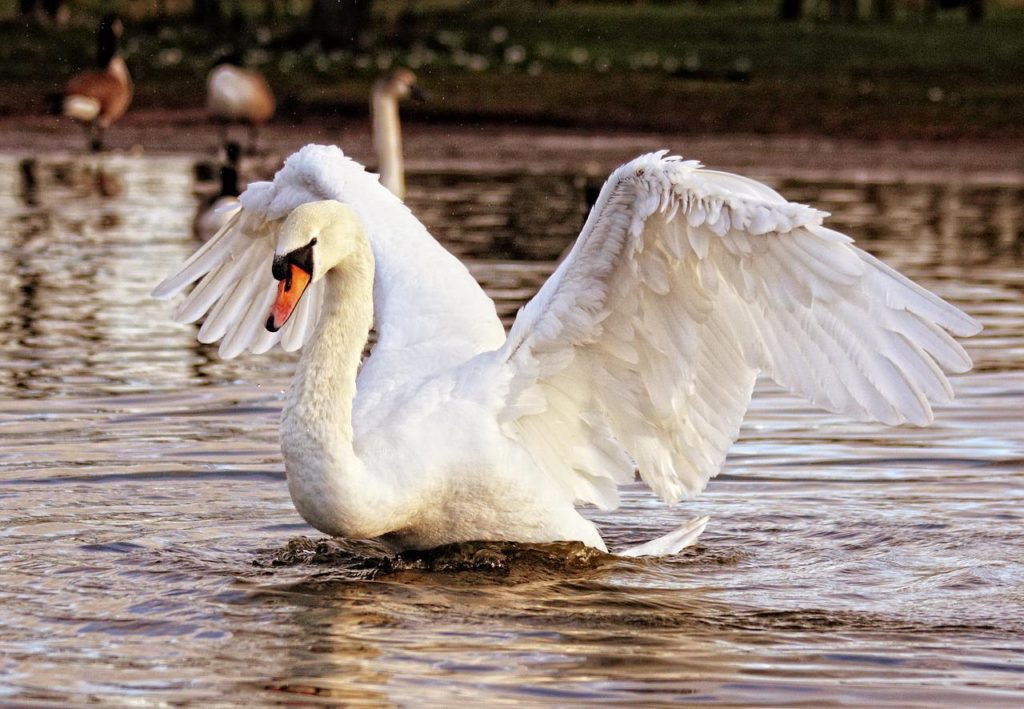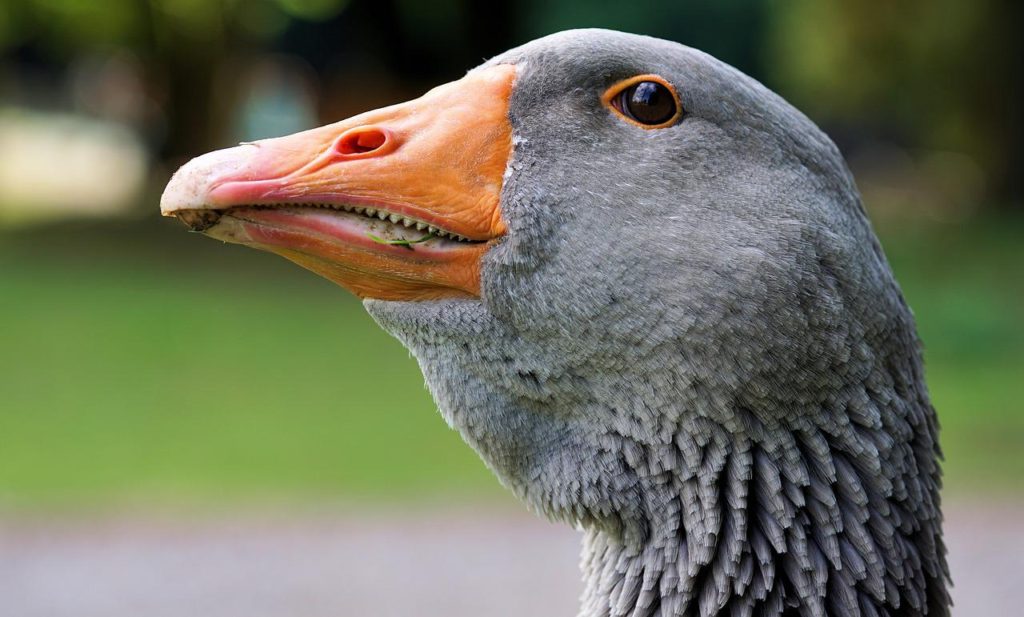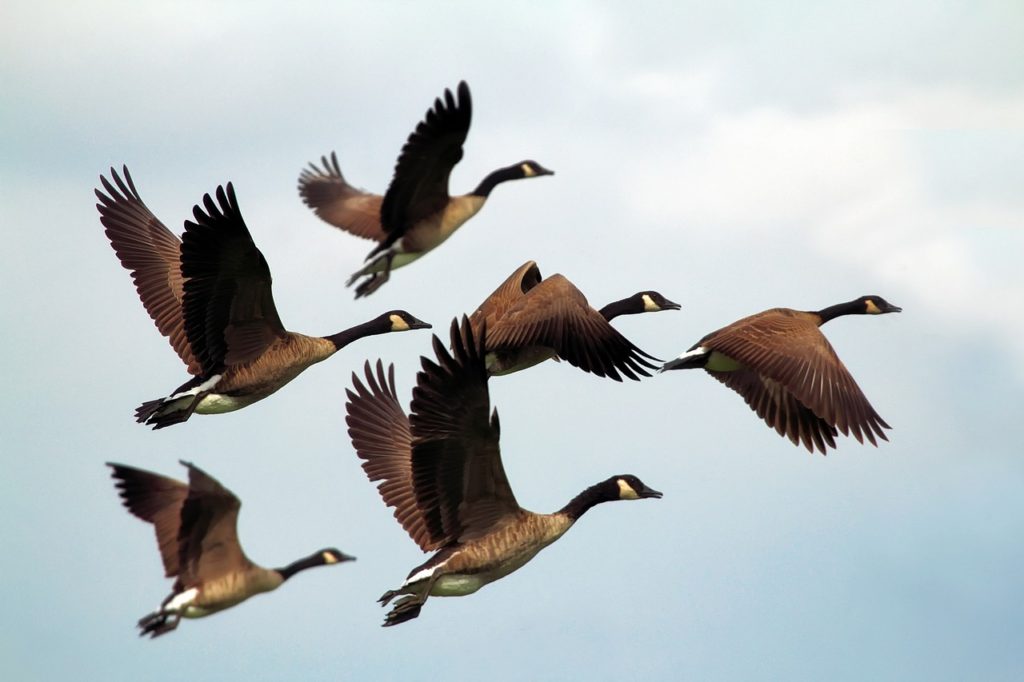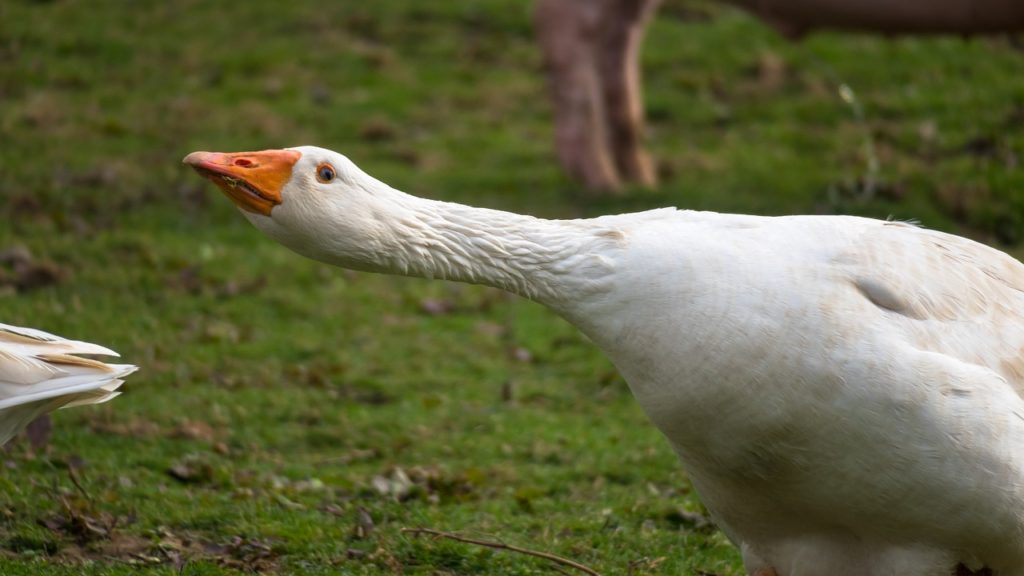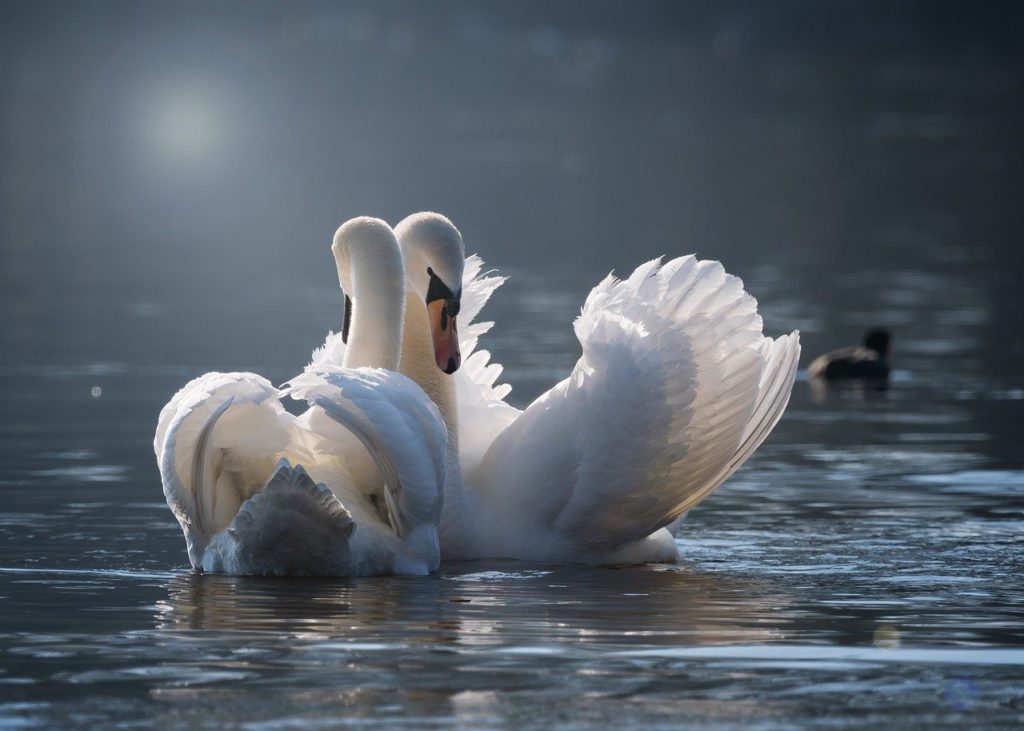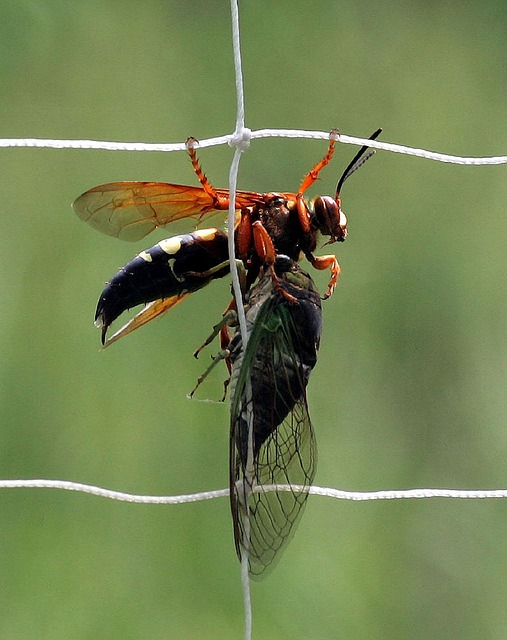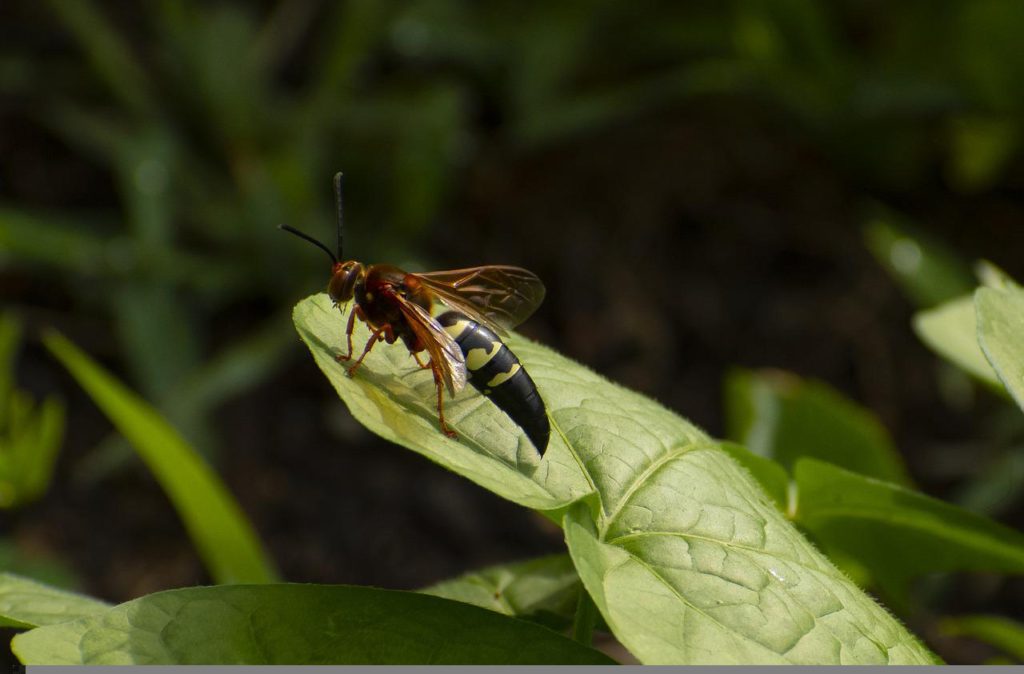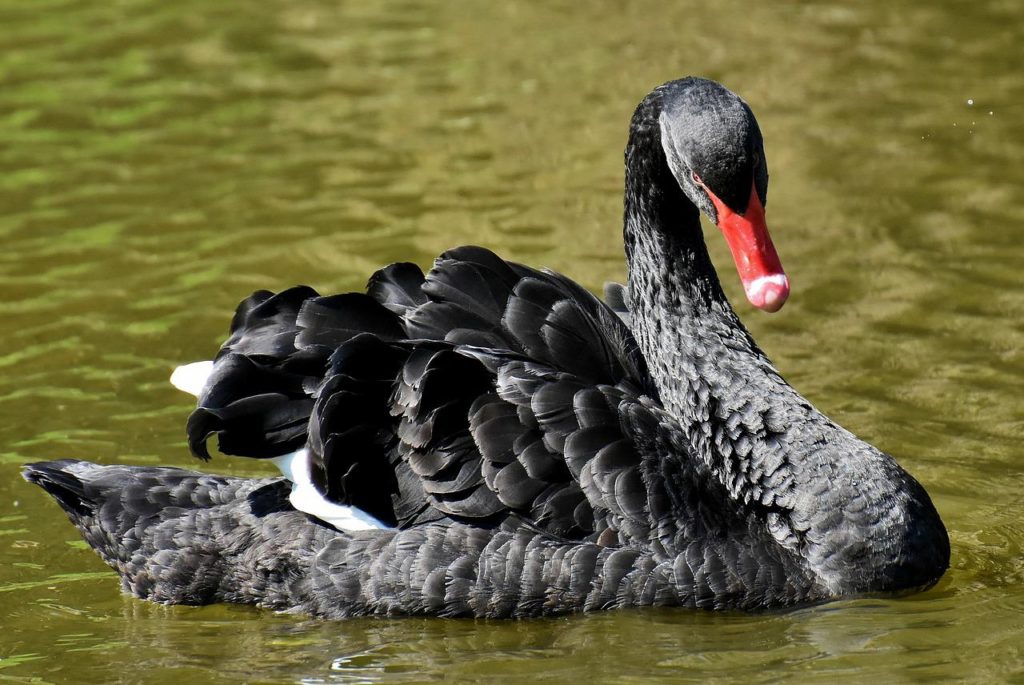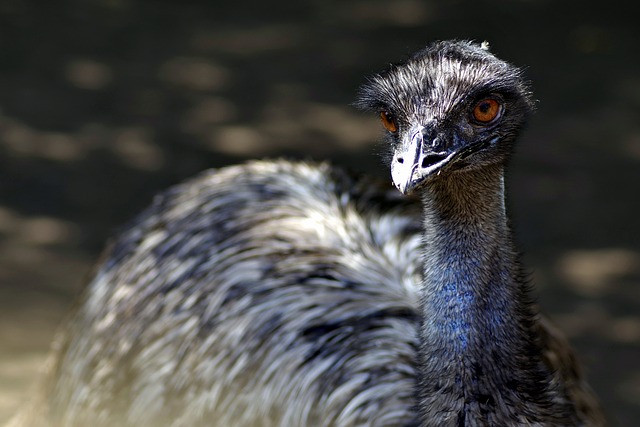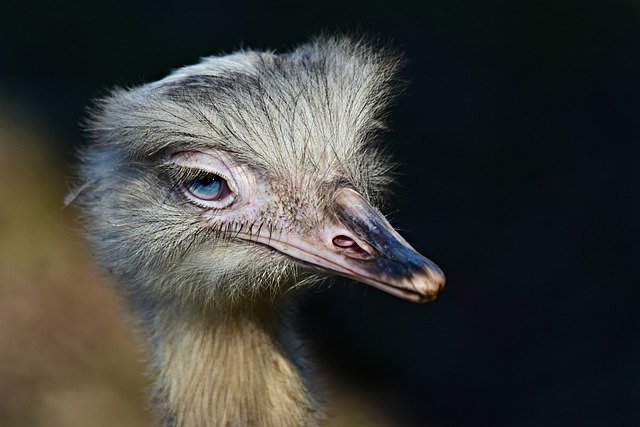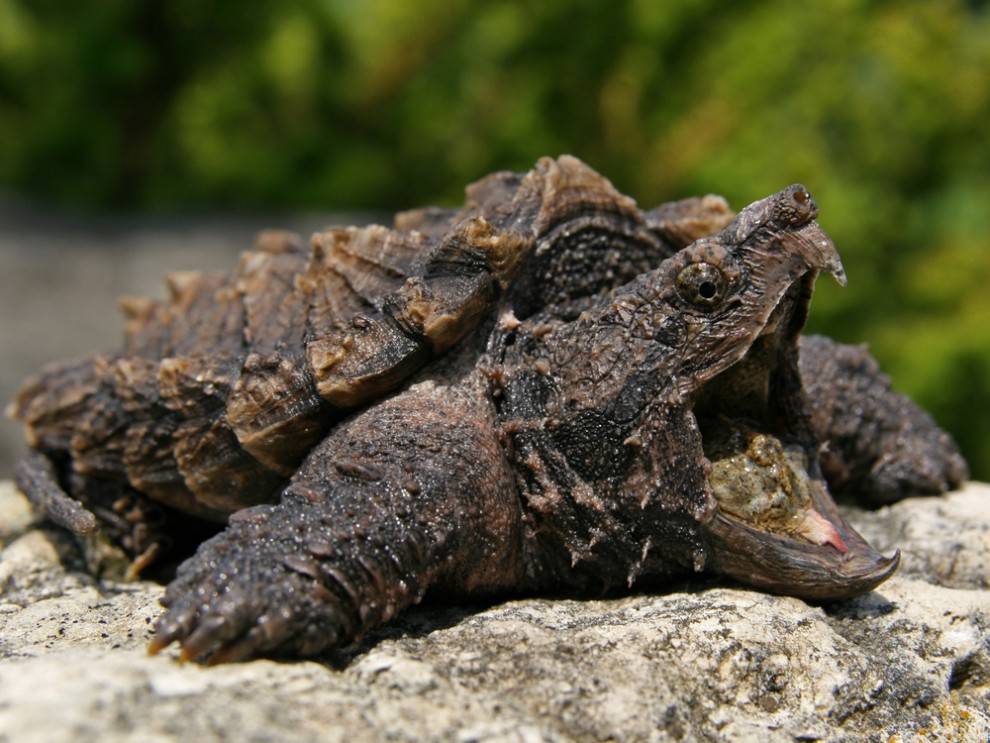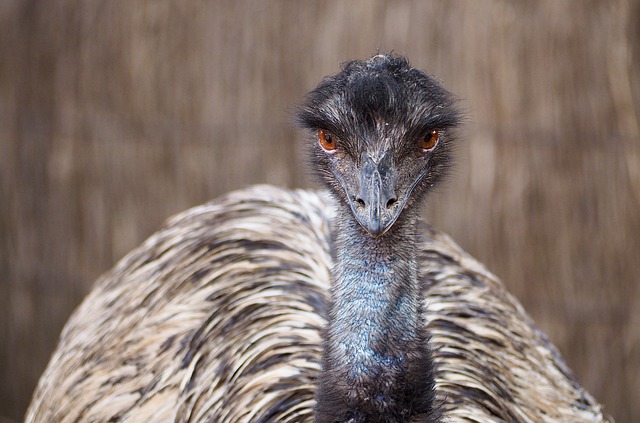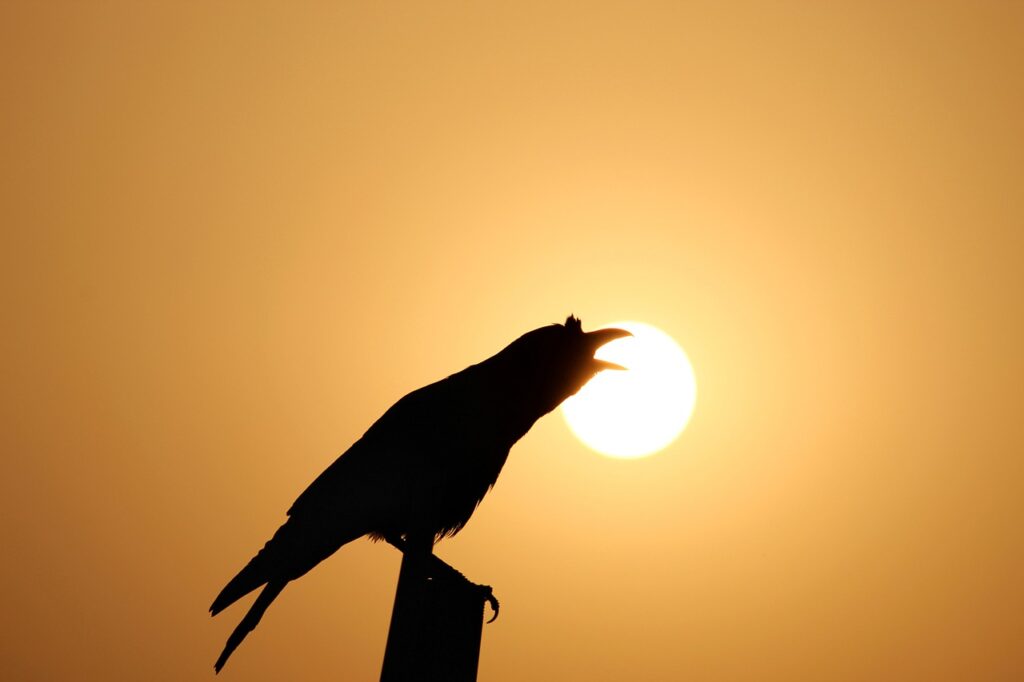
As anyone who has heard their loud “caws,” can tell you, crows are very noisy birds. In fact, they are considered one of the loudest of all bird species. But why are crows so loud? Read on to find out.
The Importance Of Vocalizations
Crows use vocalizations to pass on information to one another. For example, warnings of incoming predators to alerting rivals of territorial boundaries, and when attempting to attract a mate. And they use a range of different sounds to do so including calls, clicks, rattles, and squawks.
One of the most commonly heard are loud “caws,” which crows often use to warn other crows in their family group that there is danger. They also sometimes mimic the sounds of other animals and birds in their environment and are even capable of mimicking human speech.
Vocalizations are also highly important when it comes to establishing a social hierarchy and maintaining peaceful order in the family group. This group typically consists of a breeding pair (that stay together for life) and their offspring from previous years until they are sexually mature.
The breeding pair has the highest position in the group while the offspring hold varying positions which are determined by factors such as age, experience, and even the unique relationships between them. Together the group will forage for food, roost, raise the young, and defend their territory so cohesion in the group is immensely important.
Why Are Crows So Loud?
While crows aren’t the single loudest bird species on the planet they are one of them. In fact in ideal conditions, a crow’s call can be heard up to two miles away or even potentially farther. That’s pretty loud! Crows actually have a unique anatomy that allows them to vocalize at such high volumes.
Compared to most other birds they have a larger vocal tract. And in addition, the muscles surrounding their vocal tract are well-developed. This gives them the ability to generate both louder and more distinct calls than the majority of other bird species.
One of the most common reasons that crows call loudly is to alert their group to danger. When they spot a threat whether it’s a cat or hawk they will make loud caws to let the other crows in the area know. And if you happen to be wondering “Why are crows so loud when they see you,” the answer is you’ve most likely been spotted by a sentinel and identified as a threat.
It’s common for crows to strategically place sentinels to watch for danger. While the rest of the group forages for food one or more sentinels will be perched at high vantage points as lookouts for potential predators. And if a threat is spotted they will loudly sound the alarm giving the rest of the group time to escape.
Male crows in particular can be quite noisy during the breeding season as they make loud calls to attract a mate. The volume of their call is important since it is the loud and dominant males that typically are successful.
Why Are Crows So Loud In The Morning?
If you’ve ever been woken up by noisy crows in the morning you’re most likely wondering why they’re so loud in the early morning hours. Like many animals, crows are diurnal, which means that they are active during the day and sleep during the night. And crows often start their day with cawing sessions with the entire family group participating in a chorus of noisy vocalizations.
These sessions serve several significant purposes. Engaging in cawing sessions first thing in the morning reinforces the social bonds in their group at the start of the day, allows them to coordinate activities, and assert their presence in their territory for neighboring crows to hear. When doing so they sometimes will engage in back-and-forth calls with groups of crows from neighboring territories.
These exchanges between different groups can be quite intense and often be heard from a long way off. However, of course, crows may make loud calls or vocalizations at any time of the day, not just in the morning.
Why Are Crows So Loud At Night?
During the late fall and winter months, crows will sleep at night in communal roosts. These roosts are made up of many different individual groups of crows. And the total number of birds may be in the hundreds, thousands, or more.
Roosting in such large numbers helps to keep them safe from nocturnal predators such as owls, keeps them warm during the freezing winter nights, and allows them to communicate information to other groups, and possibly meet mates. During this time of year, they will return to their territory in the daytime to forage for food and defend it.
And each evening shortly before sunset they will fly to a pre-roost location. Different groups of crows will fly in from all around and interact and communicate with each other. This can be ear-piercingly loud especially if there is an enormous number of birds.
As darkness falls they will then move to the roost and there too they can be unbelievably loud as they find their positions for the night in the roost and begin to settle in. However, once they do settle, while still vigilant of predators, they are typically quiet during the rest of the night. That is of course unless they happen to be attacked or alerted to a predator during the nighttime hours.
Conclusion
So why are crows so loud? Crows have physical features that allow them to make calls at levels that are so loud that they can be heard for several miles. And they may make those calls in the defense of their territory, when attracting a mate, alerting their group to predators, and when roosting in large numbers. In addition, the volume of their calls can be influenced by the time of year and time of day.
Start Shopping for Birding Supplies!
What Are Crows Good For?
Crows are widely considered to be pests. However, these large and highly intelligent black birds actually serve quite a few important functions in the environment. So what are crows good for? Here's what you'll want to know. Pest And Parasite Management Crows are...
How Long Do Swans Live?
Swans are graceful and beautiful creatures and as such, people have many questions about them. They want to know about their mating rituals, their diet, their preferred habitats, and even their lifespans. How long do swans live for anyway? Swan lifespans actually vary...
Are Crows Good Pets?
People all around the world see and hear crows on a daily basis. Although these intelligent and dark birds are practically ubiquitous, most people don't think of them as being household pets. Are crows good pets? The general consensus is that crows do not make...
Are There Crows In Australia?
Crows are remarkably smart birds that also happen to be extremely adaptable. They navigate unfamiliar circumstances via observation and interaction. Crows reside in locations all over the globe. While they do not live in certain parts of South America, they do reside...
What Do Swans Eat?
Swans are famously long-necked birds that are symbols of romance, love, beauty, and purity. Since these waterbirds have so many admirers, people often wonder about their eating habits, behaviors, and more. What do swans eat, anyway? Swan Basics Swans typically live in...
Birds That Look Like Owls
Owls are typically solitary and mainly nocturnal birds. And although these well-known hooting creatures have a rather distinctive physical appearance, there are actually various other kinds of birds that resemble owls closely. And people sometimes mix them up. So...
Why Are Swans Protected?
Swans are graceful and gorgeous creatures. They also happen to have protection in the United Kingdom, interestingly enough. Why are swans protected there, anyway? And does the Queen own all the swans? Yes, she actually owns any mute swans that are unclaimed in both...
Birds With Teeth
Birds do not have teeth. However, there are quite a few that really look like they do! These birds have evolved special beaks which help them to perform important functions. So here are some of the most amazing birds with “teeth,” and what you’ll want to know about...
Do Geese Fly?
Although geese are clearly birds, there are many individuals who do not necessarily associate them with flying. So, do geese fly? The honest answer is that these waterfowl do. They do not exactly slouch in the flying department, either. Many people are pleasantly...
Are Geese Dangerous?
Geese, in brief, are waterbirds that are quite substantial in size. Since they're often spotted on golf courses, at schools, and in community parks, people understandably tend to wonder whether they're safety threats. Are geese dangerous? Why Geese Attack...
Do Swans Mate For Life?
Swans are famously elegant waterbirds that are known for their sizable bodies, webbed feet, and lengthy necks. People often associate them with romantic imagery and monogamy. Do swans mate for life? You can find the response to that common and rather fascinating...
When Do Cicada Killers Come Out?
Whether you dread them each year or are waiting for them to emerge and control the cicada population you may be wondering, “When do cicada killers come out? The answer is they come out each summer in late June or July. Here’s what you’ll want to know. Cicada Killer...
Are Cicada Killers Dangerous?
One look at one of these huge wasps buzzing around, your yard, and it’s only natural to ask, “Are cicada killers dangerous?” Fortunately, these wasps are mild-mannered. But here’s what you’ll want to know. Cicada Killer Wasps Basics Cicada killers emerge from the...
What Are Black Swans?
What are black swans? Black swans (Cygnus atratus) are sizable waterbirds. This species primarily appears in Australia's southwestern and southeastern portions. The black swan is nomadic in its homeland. This bird, true to its name, is mostly black. Although the bird...
What Do Cicada Killers Eat When There Are No Cicadas?
What do cicada killers eat when there are no cicadas? Well, while cicada killer wasps do hunt cicadas, the adults don’t actually eat them or kill them, their young do. Read on to learn more! The Cicada Killer Diet While you may have seen cicada killer wasps flying...
Do Cicada Killer Wasps Sting?
As one of the biggest species of wasp in North America the cicada killer wasp can be intimidating. And because of their size, appearance, and scary-sounding name, many people wonder, “Do cicada killer wasps sting? The answer is yes and no, and here’s what you’ll want...
Emu Facts
Did you know? One emu egg can make an omelet that can feed up to six adults. Did you know that the emu is the only bird with calf muscles? Can an emu walk backward? Let us find out by exploring some of the most jaw-dropping emu facts. Emus Have Amazingly Powerful Legs...
Rhea Facts
Doting dads, did you know the male rhea builds the nest, incubates the eggs, and takes care of the young? The rheas are paragons of parental care. It’s a bird like no other, and you will be surprised by the following rhea facts. Rheas Are One Of The Best Dads In The...
Alligator Snapping Turtle Facts
Flightless Australian Birds
There are over sixty species of flightless birds in the world. These birds have lost their capability to fly through evolution, and several of them live in the “land Down Under.” So here’s a list of all the flightless Australian birds. Emu The emu is a large...
